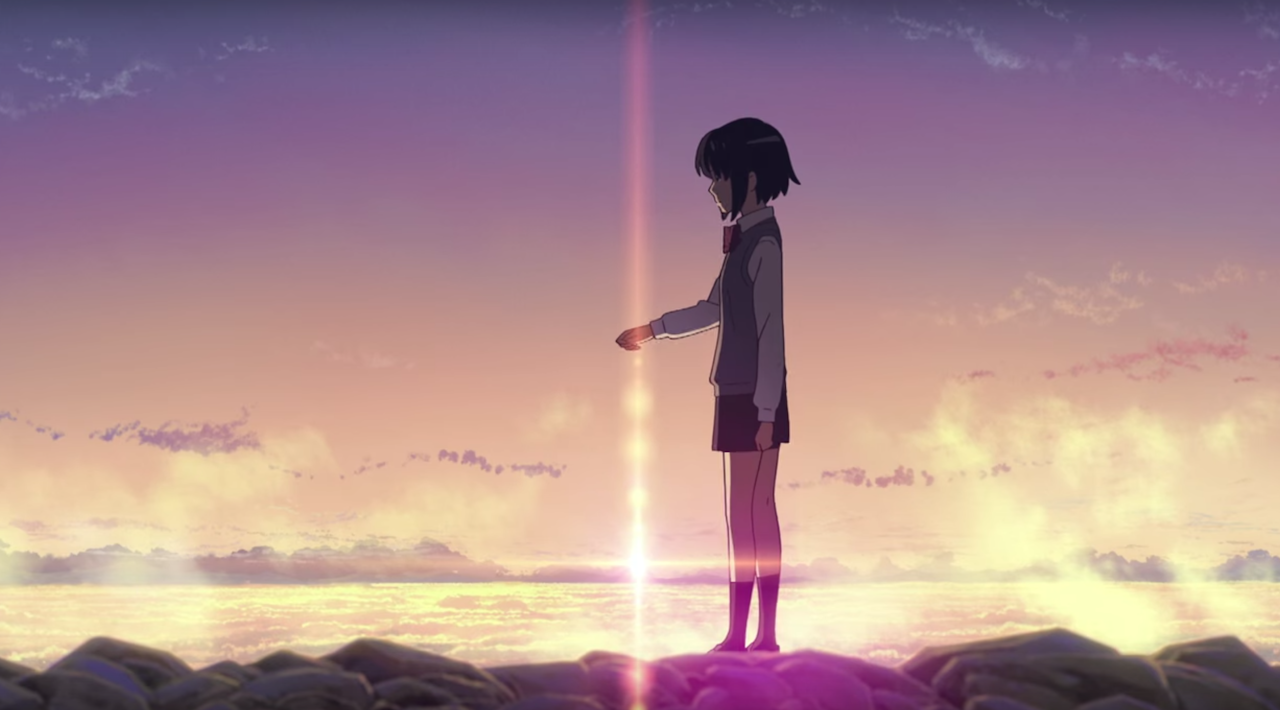I’ve been stuck on anime recently, and it isn’t just me. The genre — medium? There are arguments for both — has been globally beloved for decades, but it seems to be enjoying a moment of noticeable resonance in the past little while. Your Name, after surpassing Hayao Miyazaki’s 2001 classic Spirited Away as the highest-grossing anime film ever, was released in North America earlier this month to rave reviews. There’ve been Hollywood adaptations of Ghost in the Shell (they can’t all be winners) and Death Note, and services like Crunchyroll, Funimation, and even Netflix have streamlined the anime pipeline from Japan. Such phenomena can be hard to explain, but for anime it feels simple: It offers hope.
The longer, less-cloying explanation is that so much of what’s been popular lately within anime deals thematically with embracing hope when confronted with seemingly insurmountable odds. Films like Your Name and shows like Yuri!!! on ICE deal with mature themes like death, love, and tradition without pulling punches.
Your Name, for example, follows a boy and girl — Taki and Mitsuha — as their lives entwine due to an unexplained ability to body-swap in their sleep. The premise, which the name in part reflects, is the two slowly coming to understand each other (and each other’s names) before being ripped apart by space and time. And there’s seemingly no way to return to the admittedly weird situation they were in before.
Here’s the thing: Up until the tragedy that serves as the impetus for the second act of the film, it’s largely a goofy movie about two teens being teens. Mitsuha is all feminine in Taki’s body, and Taki is all masculine in Mitsuha’s body. And then disaster strikes, and suddenly it becomes about what we do in the face of loss. What do you do when confronted with something awful, something you have no apparent control over, something you simply cannot change? In Your Name, the answer is… you try anyway. You hope for the best.
And it’s not just the slice-of-life, day-to-day drama anime that’s in on this. Attack on Titan, the popular apocalyptic anime series about murderous acrobat teens, features giant, uncanny valley-esque cannibal giants that mindlessly gobble up people, and the protagonist, Eren Yeager, watches from not too far away as his mother is consumed. That’s within the first couple episodes, and things only get darker from there.
But what Attack on Titan and other anime like it also do is embrace and highlight the complex struggle of humanity, no matter the circumstances. People fight back. Even when people are getting eaten left and right, or when the memory of something important fades like in Your Name, they endure.
No artistic endeavor exists in a vacuum, and it almost goes without saying that the world as it currently stands — the atrocities in Syria, the continuing water crisis in Flint, just about every day Trump continues to be president — can feel inordinately large and unchanging and difficult to fully digest. Despair is simple, and easy.
Anime can be appealing because it so often accepts that the world is ending — and then offers solutions for that terrifying reality. It’s regularly abstract, sure, but it’s not the details that are important. It doesn’t matter that there are supernatural problems solved by supernatural means. It’s the fact that the protagonists bother at all.
Anime can be appealing because it so often accepts that the world is ending — and then offers solutions
That isn’t to hang all of Your Name’s continuing success on one thing over any other. The film is gorgeously animated, and its complex plot features a number of popular tropes — body-swapping is one of many — condensed into a single, sometimes difficult universe to unravel. There’s an equally strong theme of old versus new, modern versus traditional at play that likely resonated even better with a Japanese audience.
“One of the inspirations for the film was the earthquake in 2011,” director Makoto Shinkai told Vice late last year. “It was the largest in a thousand years, and there was something similar 1,000 years ago, which we all forgot about. But if you look closer there were warnings, like stone inscriptions in the cave in the film: don't live in this valley. But we forget those warnings, or dismiss them as something ‘from the ancient times.’ We think they're just dangers from the past. When we have a disaster in Japan, I wonder, how can we prevent our lives and traditions and history from the disaster?”
Elsewhere in the world, anime straight from Japan is helping some of us find hope in the face of disaster, too.

